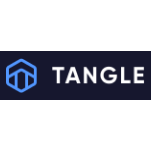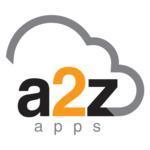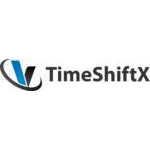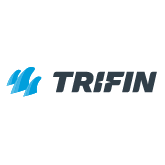
Azure
Microsoft Azure offers a versatile cloud computing platform that empowers organizations to develop, test, and manage applications efficiently. With over 100 services, it supports rapid innovation and seamless deployment across cloud, on-premises, and hybrid environments. Built-in security features and expert compliance ensure trusted solutions for enterprises and startups alike.
Top Azure Alternatives
GitHub
The world’s leading AI-powered developer platform facilitates rapid and secure code development through GitHub Copilot, enhancing workflows.
UltraEdit
UltraEdit is the world’s leading text editor, designed for developers and professionals needing robust features.
Tangle
With Tangle, organizations can swiftly create tailored enterprise applications, significantly boosting production efficiency while reducing costs.
AWS Lambda
AWS Lambda enables developers to run code in response to events without the need for server management.
Iron Speed Designer
With Iron Speed Designer, users can effortlessly transform an existing database into a visually captivating .NET application.
Anypoint Platform
Anypoint Platform is the perfect companion for developing and managing apps.
Cloud OS
Users can build and publish their own online stores in hours, leverage rich back-end features...
AppSheet
By harnessing AI and integrating with Google Workspace, it allows seamless connections to various data...
Vivaldi MySQL Web Application Builder
With an intuitive interface, users can design forms and menus while Vivaldi manages all CRUD...
The FileMaker Platform
With its robust toolset, it seamlessly integrates workflows and automates processes across diverse tech stacks...
TimeShiftX
It facilitates the evaluation of date and time-sensitive functionalities—like billing cycles, leap years, and daylight...
Codenvy Developer Workspaces
Built on Eclipse Che, it provides a secure, zero-configuration setup, enabling developers to easily access...
Shuttle Application Development
With a focus on streamlining data sharing and collaboration among stakeholders, it guides users through...
Bizness Apps
With an intuitive drag-and-drop interface, it allows users to integrate features like mobile ordering, loyalty...
TriFin
It facilitates seamless integration with databases and APIs, ensuring a tailored fit for unique business...
Azure Review and Overview
Azure is a recognized cloud networking service, founded in October 2008. The Azure CDN services were started in November 2009. This Global CDN network services are quite extensive and have support for most files like audio, videos, texts, documents, and many more. There is about 54 location of the CDN servers, which are then served to the users closer to each server, making the information transmission faster and reliable.
Azure CDN Features and Pricing
A CDN is called Content Delivery Network, which is a collection of various server setup across multiple locations worldwide to offer faster and consistent content to the users. Azure also offers a leading CDN service by offering better performing servers and higher bandwidths. It also enhances different content using various CDN POPs. This is better for many apps that need several trips to load content that needs significant scaling and better traffic distribution among the servers, along with reducing the load on the main server.
The main standards chosen for this are Verizon, Akamai, and Microsoft, being servers S1, S2, and S3, respectively. For the first 10 TB, Azure CDN charges about $0.081 to $0.233 per GB. These plans can go up to the range of 1000-5000 TB per month, with reduced charges of $0.023 to $0.121. This CDN is standard and has decent services.
In the Premium CDN network, the charges are increased in the range of $0.158-0.466 per GB for the first 10 GB. This premium CDN is from Verizon. Accelerated Data Transfers is used to increase the transfer speed on the non-cached web content like shopping carts, searches, dynamic searches, and many more. The plans here are the same for Premium and Standard plans. For ADT, Azure charges $0.177 per GB for an initial 50 TB/month.
The key features of Azure CDN are dynamic site acceleration, CDN cache rules, diagnostic logs, geo-filtering, file compression, and HTTPS domain support. In the security features, Azure offers HTTPS with CDN endpoints, custom HTTPS, token authentication, DDOS protection, and custom certifications. Azure CDN has even advanced analytics and reporting tools. Here, admins can try diagnostic logs, core reports, real-time stats, and edge node performance too. Overall, Microsoft Azure CDN is a reliable and cost-effective CDN service.
Top Azure Features
- Rapid application development
- Secure application testing
- Hybrid cloud integration
- Open source compatibility
- Multi-language support
- Framework flexibility
- Edge computing capabilities
- Cost-saving solutions
- Continuous innovation updates
- Expert security measures
- Proactive compliance management
- On-premises deployment options
- Customizable development tools
- Management of complex environments
- Scalable cloud services
- AI and machine learning integration
- DevOps support
- Real-time analytics features
- Global data center network
- Enterprise-level reliability.














